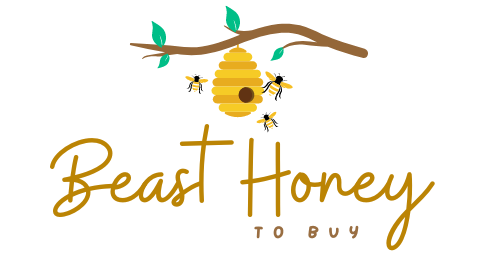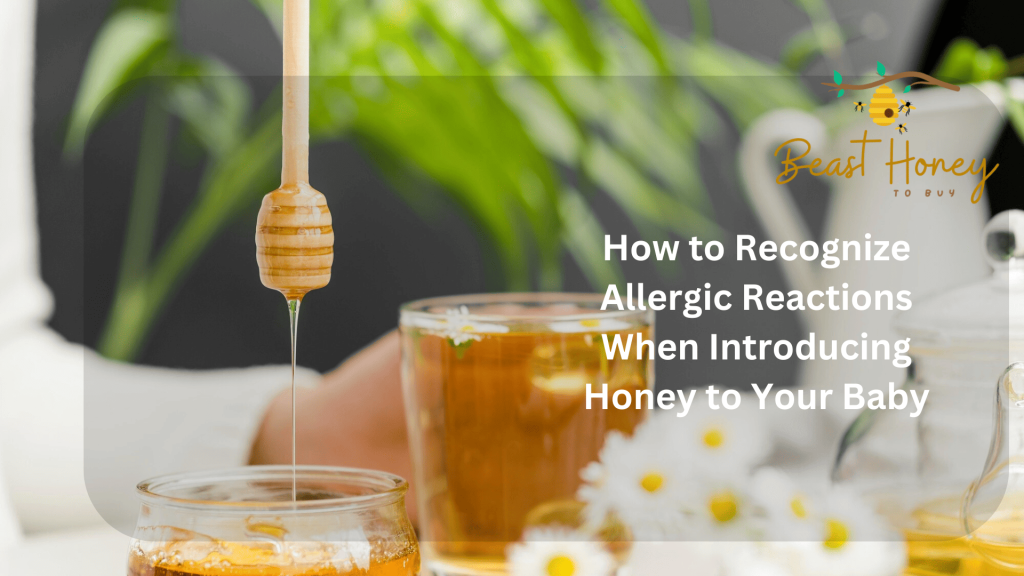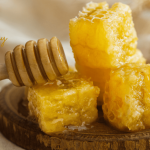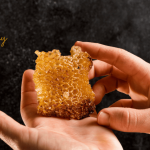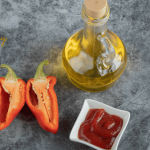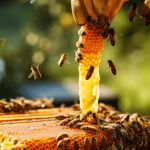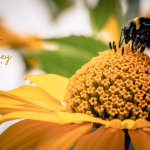It sounds like honey is a magical ingredient because of its antibacterial and antioxidant qualities, which you may have heard about.
Alternatively, you might simply adore the flavor! In any case, it’s crucial to understand that honey isn’t really safe for young children.
Learn why honey is not good for infants when it’s appropriate to start giving your child honey, and what happens if your baby consumes honey.
Honey has long been prized for its inherent sweetness, therapeutic qualities, and ability to be used to make a wide variety of incredibly tasty treats.
We use honey a lot in my house, and while it seems like a harmless ingredient and is generally a great sweetener for adults and children, babies younger than 12 months old should not be given honey due to the significant (though extremely rare and unlikely) health risk.
IWe believe that it is crucial to educate parents and other caregivers about the safety of food, particularly with regard to infants, whose developing immune systems put them at a higher risk of contracting food borne illnesses.
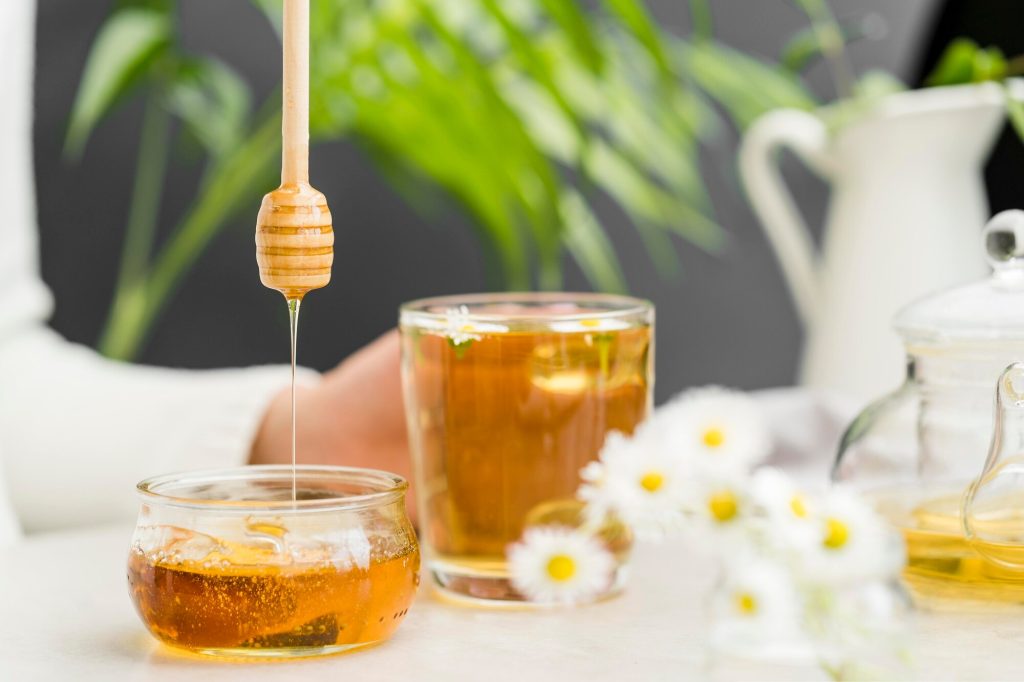
Why Is Honey Not Accessible to Babies?
Honey contains bacteria that are too strong for an infant’s developing digestive system, so it should not be given to babies younger than 12 months of age.
It is possible for your baby to contract infant botulism from eating honey.
Giving your infant processed foods made with honey, like honey graham crackers, is something else you should refrain from doing. Lastly, do not give your child a pacifier that has been dipped in honey.
Just to remind you, you’ve probably noticed that almost all honey jars have a warning on them not to give honey to babies younger than 12 months.
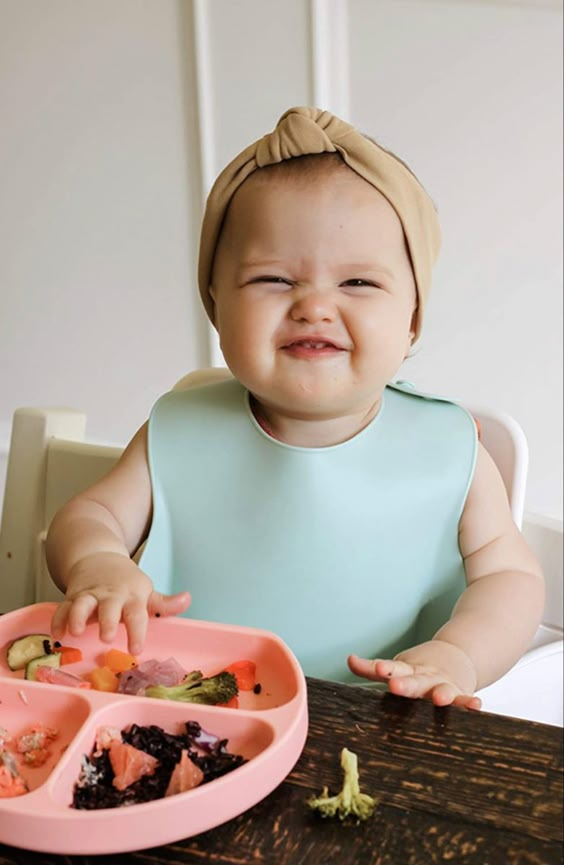
Risk of Infant Botulism from Honey
The bacterium Clostridium botulinum is the source of the uncommon but potentially fatal disease botulism.
The risk of infant botulism, which is extremely uncommon but most frequently affects infants under six months of age, is the main reason why babies should not consume honey.
The bacteria is present in a variety of settings, such as soil, rivers, and ocean water. Little, dormant Clostridium botulinum spores can be found in honey.
Infants under one year old may not have the developed immune and digestive systems that adults and older children have, making them more capable of fighting the bacterium.
An infant’s developing digestive system may allow Clostridium botulinum spores to proliferate and create a toxic toxin when they ingest even a small amount of honey contaminated with the bacteria.
Numerous symptoms, such as muscle weakness, breathing difficulties, poor feeding, and even paralysis, can be brought on by this toxin. Untreated infant botulism can be lethal in severe cases.
It is crucial to remember that “honey” refers to both raw and pasteurized honey as well as products that are made, baked, or cooked using honey, as well as items that contain honey, like cereals or snacks with a honey flavor.
In order to reduce the effects of the botulinum toxin, antitoxin therapy is commonly used to treat infant botulism. Most of the time, if treatment is started early enough, a baby can recover completely and resume normal neurological functioning.
Babies are still susceptible to infant botulism even after they turn one year old; it’s not like a light switch flips off.
A baby’s digestive system can better handle the bacteria during the first year of life as it becomes more developed.
To put it another way, a baby who is 4 months old has a higher chance of developing infant botulism if they consume honey than a baby who is 11 months old. Honey stops being a major risk by the age of one.
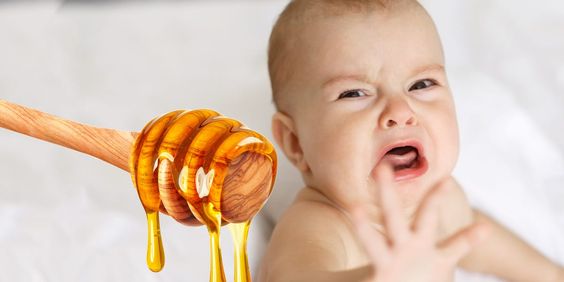
Avoiding added sugars in infants
Honey isn’t a healthy option for babies because it contains added sugar, which makes it unhealthy even without the risk of infant botulism.
Although honey is a healthy natural sweetener and contains some nutrients, children under the age of two should not consume added sugars, according to the AAP, AHA, and CDC.
The added sugar recommendation seems to me to be more of a broad recommendation than a strict guideline.
While other added sugars don’t always pose the same risk to infants as honey does, they do not usually supply the nutrients that infants and toddlers require to grow and thrive, and consuming too much of them can have negative long term health effects.
For instance, giving a baby a diet high in added sugar too early on may cause them to miss out on more nutrient dense foods, which could cause them to become malnourished.
Furthermore, a child’s interest in a wider variety of foods may be diminished by excessive sweeteners, which may also raise their risk of type 2 diabetes and dental caries, or cavities.
Generally speaking, the best thing to do when making something for the whole family including the baby and it calls for honey is to simply replace it with mashed banana or cooked, pureed fruit.
If fruit isn’t suitable for the recipe, regular sugar or maple syrup are safer options for infants than honey.
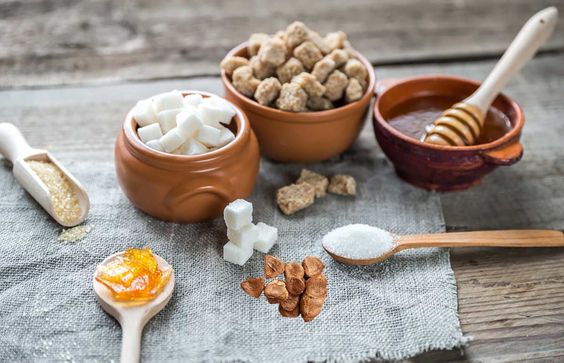
If I give my baby honey by accident, what should I do?
Because infant botulism cases are extremely rare, if you accidentally give your baby honey and they are younger than a year old, try not to panic. Everything will probably be okay.
Avoid attempting to induce vomiting as this can worsen the dehydration risks and may not eliminate any honey that has been consumed.
Just keep an eye out for signs of botulism in your child, particularly in the early hours to days following honey consumption.
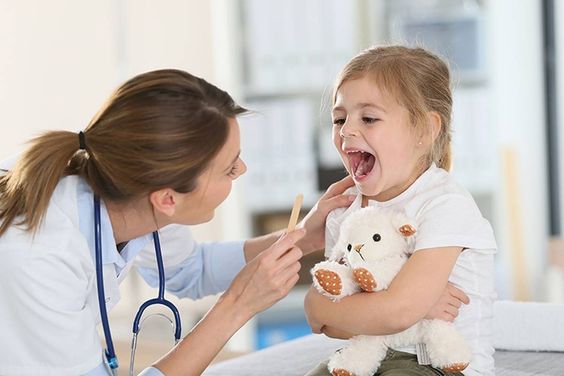
Keep an eye out for symptoms:
Look out for symptoms of infant botulism, such as listlessness, lack of appetite, lethargy, dropping eyelids, and cramping muscles, if your baby has already consumed honey.
Homemade foods should be pressure cooked to get rid of any bacterium spores and lessen the possibility that botulinum spores will develop in her digestive systems. Foods in cans should be boiled for ten minutes before serving.
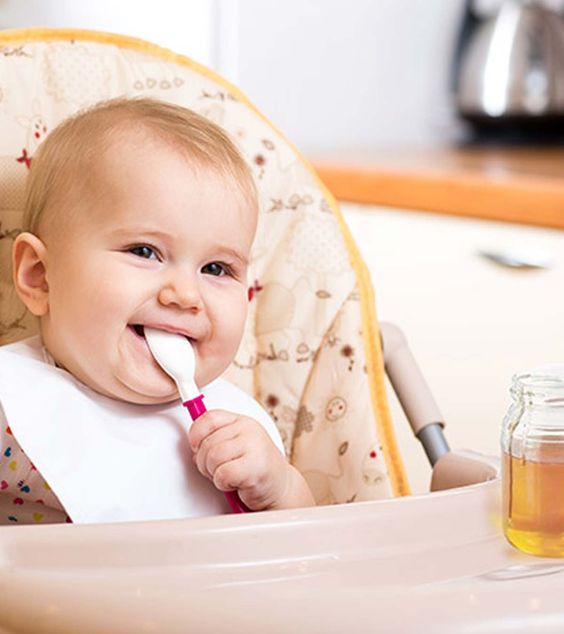
When Is Honey Safe for Babies to Eat?
Your child is eligible to consume honey once he turns one year old. He will have developed enough digestive systems by then to be able to pass the bacteria in the honey without becoming sick.
What Takes Place If Your Baby Is Given Honey?
Honey contains bacteria that can cause infant botulism, so if you give it to your baby, be careful.
The bacteria that cause the illness will germinate, grow, and produce a toxin after an infant consumes honey.
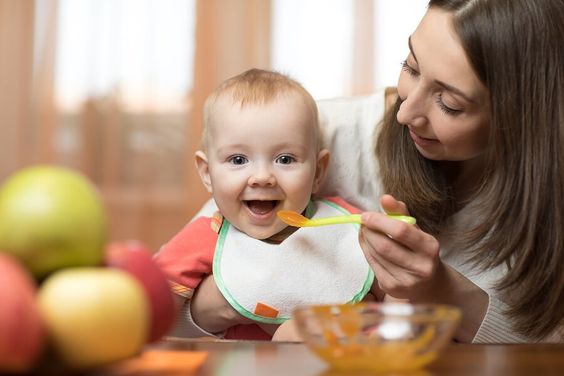
What Advantages Does Honey Offer Toddlers?
Toddlers older than 18 months can safely consume honey, even though infant botulism affects infants younger than one year of age.
- Delivers immediate relief from cough, cold, and flu
- Improves immune system strength
- Serves as a natural sleep and eczema remedy
- Contains an abundance of minerals, flavonoids, essential amino acids, and multivitamins
- It helps the digestive system function better and encourages regular bowel movements
- Possesses abundant antibacterial and antifungal qualities that expedite wound healing
- It enhances mood and fosters the growth of cognition
- The naturally occurring fructose content of this food encourages elevated energy levels throughout the day
What Does Infant Botulism Mean?
The bacteria Clostridium botulinum, which is normally found in honey but can also be found in other foods like home canning foods that have become contaminated, produces toxins that cause botulism, an illness.
When a baby contracts infant botulism, it means that the infant is younger than twelve months old when the illness takes place.
Babies with botulism may show symptoms such as
- Constipation
- Feeble sobs
- Absence of expression on the face
- Decreased gag reflex
- Sluggish feeding, similar to inadequate nursing
- Fragility or floppy
- Breathing problems
- Reduced kinetic energy
Get in touch with your healthcare provider right away if you think your baby may have consumed honey or if he exhibits any of the symptoms listed above.
Your baby may have trouble breathing and swallowing if he is diagnosed with botulism.
He might therefore require specialized care and observation in the hospital, which might entail being put on a ventilator, receiving intravenous juices or feedings, and other procedures.
To expedite your baby’s recuperation, an antitoxin may also be administered.
Wait until after her first birthday to introduce honey to your child in order to ensure her safety and well being.
When she’s older, there will be plenty of opportunities for her to experience the flavor and health benefits of honey.
She will flourish in the interim on her diet of breast milk or formula in addition to the vast array of solid foods she is discovering and learning to love.
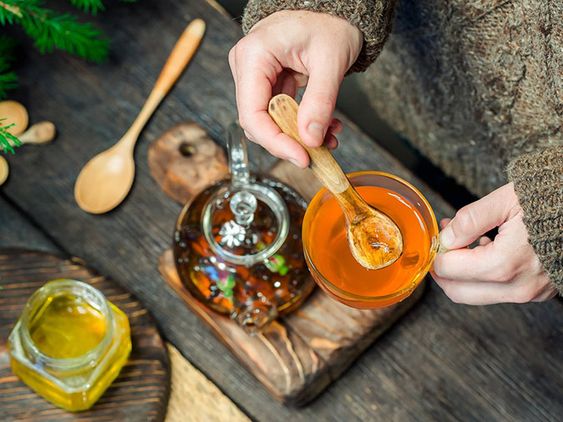
Nutritious Details About Honey
Many people believe that honey is a healthier alternative to sugar because it is a natural sweetener. There are trace amounts of: in honey.
- Minerals
- Vitamins
- Electrolytes
- The Enzyme
- amino acids
- Flavonoids
You would need to consume far more honey than is recommended in order to reap the benefits of these nutrients. As a sugar, honey has a lot of calories.
Honey should only be consumed in small amounts because it is an added sugar.
We advise against giving added sugars of any kind to kids younger than two years old.
Not included in the definition of added sugar is the sugar found naturally in fruits, whole grains, beans, and dairy.
Your baby’s development and growth depend on these natural sugars. Dextrose, sucrose, and yes, even honey, can all be labels for added sugars.
Insulin resistance, prediabetes, and type 2 diabetes are linked to these.
When your toddler reaches two years old, their daily intake of added sugars should not exceed 25 grams or 6 teaspoons. If the quantity of honey used is less than that advised, it can be substituted for sugar.
FAQs: Honey and Babies
These are some frequently asked questions concerning honey and babies.
Can infants older than 12 months be fed honey every day?
Over the age of one year, honey is safe for babies to consume, but Nicole advises limiting its intake because it is an added sweetener.
Can infants older than 12 months consume raw honey?
Indeed, honey can be eaten raw or cooked by babies older than 12 months.
If you are nursing a baby or pregnant, can you eat honey?
You certainly could!
Remember that Summer Health’s team of pediatricians and pediatric registered dietitians is only a text away if you have any questions concerning honey and your child.
